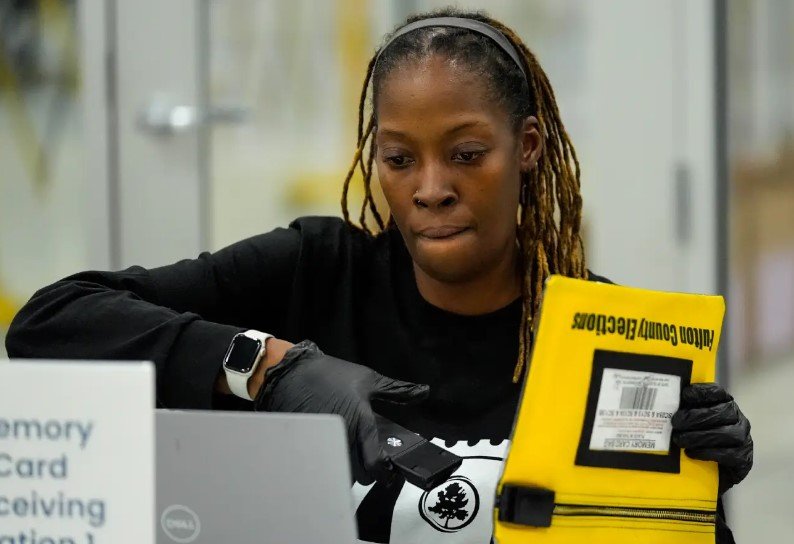Georgia’s Secretary of State, Brad Raffensperger, confirmed on Tuesday that bomb threats targeting polling places were linked to Russian sources. While the threats were deemed not credible, they raised alarms across multiple counties, triggering swift responses from law enforcement. The news has sent ripples through the election landscape, underscoring ongoing concerns about foreign interference.
The threats, affecting between five and seven precincts, prompted an immediate investigation. Raffensperger stated, “In the interest of public safety, you always check that out.” He noted the unsettling trend of foreign actors trying to disrupt the electoral process. “They’re up to mischief it seems,” he added, reflecting on the intentions behind such threats.
A Coordinated Attack?
The FBI, responding to the situation, revealed that similar bomb threats were reported at polling locations in various states. The agency indicated that many of these threats were traced back to Russian email domains, suggesting a coordinated effort to instigate fear and chaos during a pivotal time in American democracy. This revelation aligns with ongoing concerns about Russia’s influence on U.S. elections, echoing past incidents of interference.

In a press conference, Raffensperger confirmed that the federal government played a crucial role in identifying the origin of the threats. However, he was careful not to disclose specifics about which law enforcement agencies were involved or the methods used to trace the threats back to Russia. “The threat was dealt with Tuesday morning, and law enforcement was on top of it,” he assured the public.
The Implications for Election Security
The threats come at a sensitive time as voters head to the polls, amplifying fears around election security. The implications of these incidents stretch beyond immediate safety concerns; they reflect a larger narrative of foreign interference that has plagued American elections for years. This incident has reignited discussions about the measures necessary to protect polling places and maintain public confidence in the electoral process.
- Key points surrounding this situation include:
- Scope of Threats: Threats reported in multiple Georgia counties.
- Federal Involvement: FBI’s role in identifying the threats.
- Election Integrity Concerns: The impact on voter confidence and safety.
As elections approach, officials must navigate the delicate balance between ensuring voter safety and maintaining the integrity of the electoral process. The fears of potential disruptions loom large, and voters are left to grapple with the realities of these threats.
Public Reaction and Political Ramifications
The public reaction to these threats has been one of concern and vigilance. Many citizens are left questioning the safety of their polling places and the broader implications for the electoral process. Social media has been abuzz with discussions about the potential for foreign interference and how it could affect voter turnout and trust in the system.
Raffensperger’s comments highlight a broader political narrative that connects election security with national security. He emphasized the importance of addressing these threats head-on, noting, “They don’t want us to have a smooth, fair and accurate election.” His statements reflect a growing sentiment among officials that proactive measures are essential in safeguarding the electoral process from external threats.
An Ongoing Challenge
This incident serves as a stark reminder of the challenges officials face in safeguarding the electoral process. With foreign interference still a pressing concern, maintaining public trust becomes increasingly difficult. The situation necessitates a proactive approach to address vulnerabilities in the system and reassure voters that their voices will be heard without fear of intimidation or disruption.
In light of these events, it’s crucial for both state and federal agencies to work in tandem. Strengthening communication lines and establishing clear protocols can help mitigate the impact of such threats in the future. As the election unfolds, the focus will remain on ensuring that every voter feels secure and empowered to participate in the democratic process.
